"To whoever coined the phrase “hot hatch” - thank you. I say thank you because it’s made talking about the subject a hell of a lot easier. And as car nuts, we tend to talk about the little pocket "

PT19
What will the future of cars look like?
If there’s one thing that always provokes a positive emotional response on Influx, it’s nostalgia. The rose-tinted view of everything just being better back in the old days when life was fun, cars were mechanical, broke down a lot, and drivers did all the work themselves.
The thing is, tech is moving on and is doing so at a fair pace because that’s what people are seeking from new car showrooms. A bit of retro style à la MINI/Fiat 500 can help with the quirkier city cars, but it’s modern advancements that make a new car, er, new. In-car entertainment. Bluetooth. Theft prevention. Driver aids. Technology is what keeps Euro NCAP ratings up, and CO2 emissions down.
Buyers like a beepy thing warning us that the neighbour’s cat is walking behind the car. We like a gentle bong to tell us a tyre needs a bit of air, or that the road home has got a lot of traffic on it. There’s also a perception of class and quality if your car has a modern interior, full of screens and endless menus.
Ultimately, buyers (and leasers, of course) are dictating which cars get to leave the showrooms – and these consumers are the ones pushing the desire for technology in and around the motoring world. It’s an inescapable product of progression.
For that reason, I went along to PT19, the latest of Pure Technology Group’s annual hubs of innovation and tech advancements.
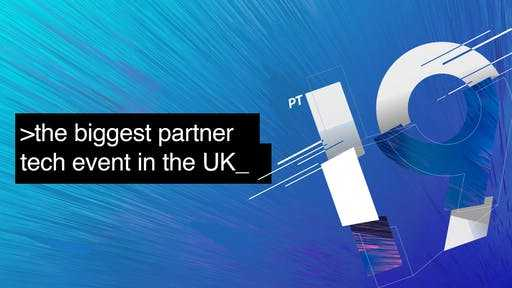
An event like PT19 is not Influx’s typical revving ground, but immediately at the entrance was a selection of niche cars; a Tesla Model X, a Volkswagen e-Golf, a McLaren P1 and an Aston Martin GT4 racecar. All quite interesting vehicles in their own right but the Golf wasn’t getting a look in. Even at a tech event, the low-slung McLaren and Aston were making the greatest first impression – that was until something rather bizarre happened.
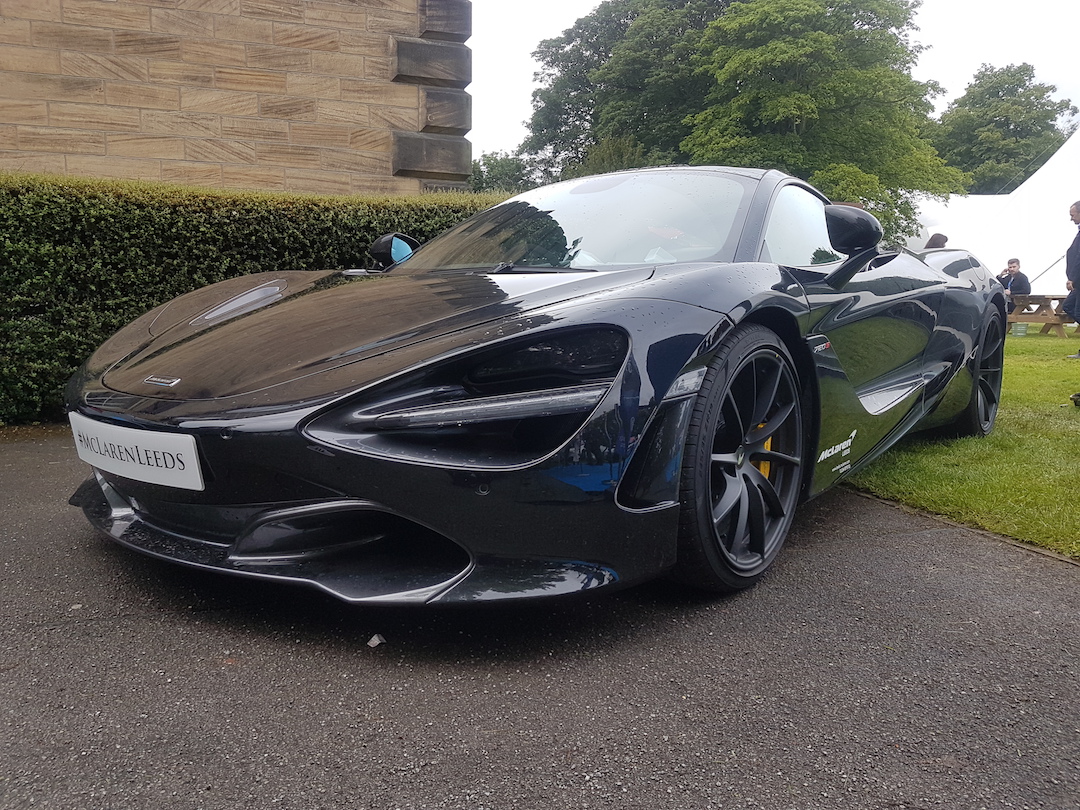
The at-first unassuming Tesla, resplendent in kitchen-appliance white, suddenly started to play a funky tune, flash its lights in time with the music and even flapped its gullwing doors like it had contracted Saturday Night Fever. It drew a crowd. Suddenly, the static McLaren and Aston Martin were overshadowed. As for the Golf, well, it was so inconspicuous I think a few people tripped over it on the way to see the dancing Tesla.
It highlighted the fact that people do love a gimmick, a techy, flashy, show-offy gimmick. A flex of tech. The Golf is almost certainly a better value package than the Tesla, but it was simply too ordinary in that company, and in a world where speed, screeching tyres and 100dB exhausts like those on the other cars are vilified, tech gives companies a chance to get some attention.
The Tesla nailed it.
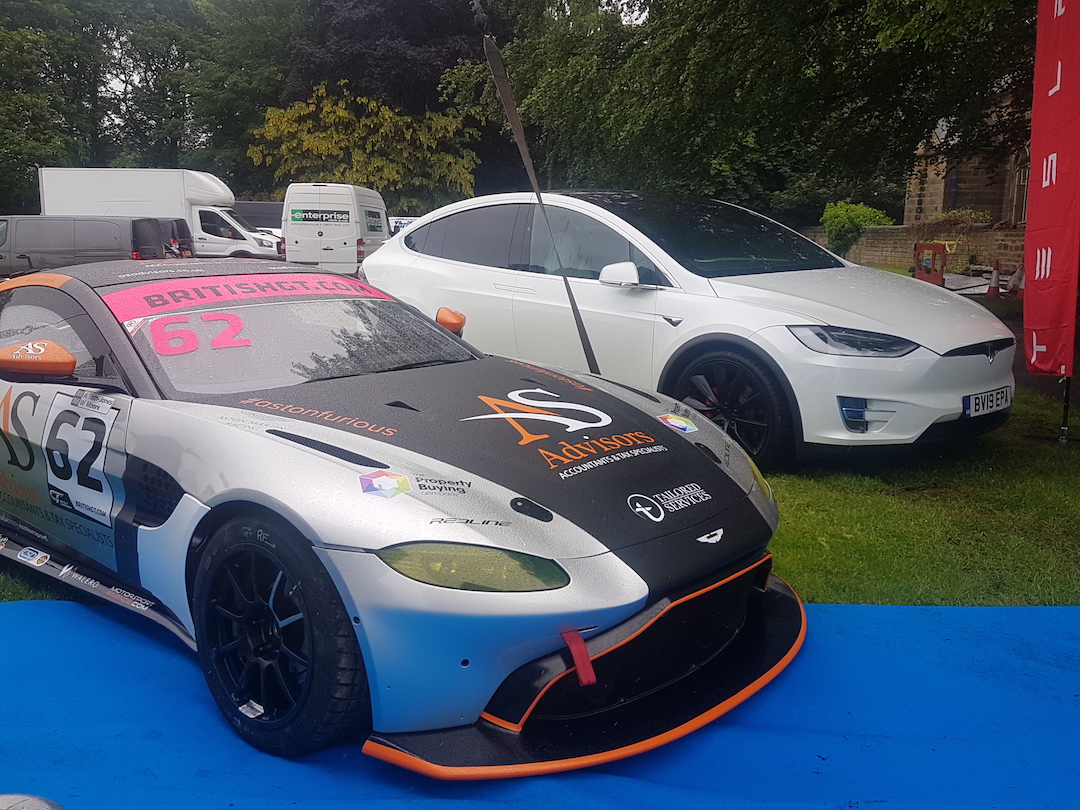
Inside PT19 were the more familiar tech brands with computers, drones, printers etc, as well as a crowd-pulling racecar simulator. But this wasn’t brought along by Porsche, Lotus or Ferrari. It was brought by Dell. Now, Dell does have a sponsorship agreement with McLaren which is helpful, but still – it’s not a car manufacturer, it makes computers. It was showing its computing power, not a knowledge of racing, but boy was that simulator good.
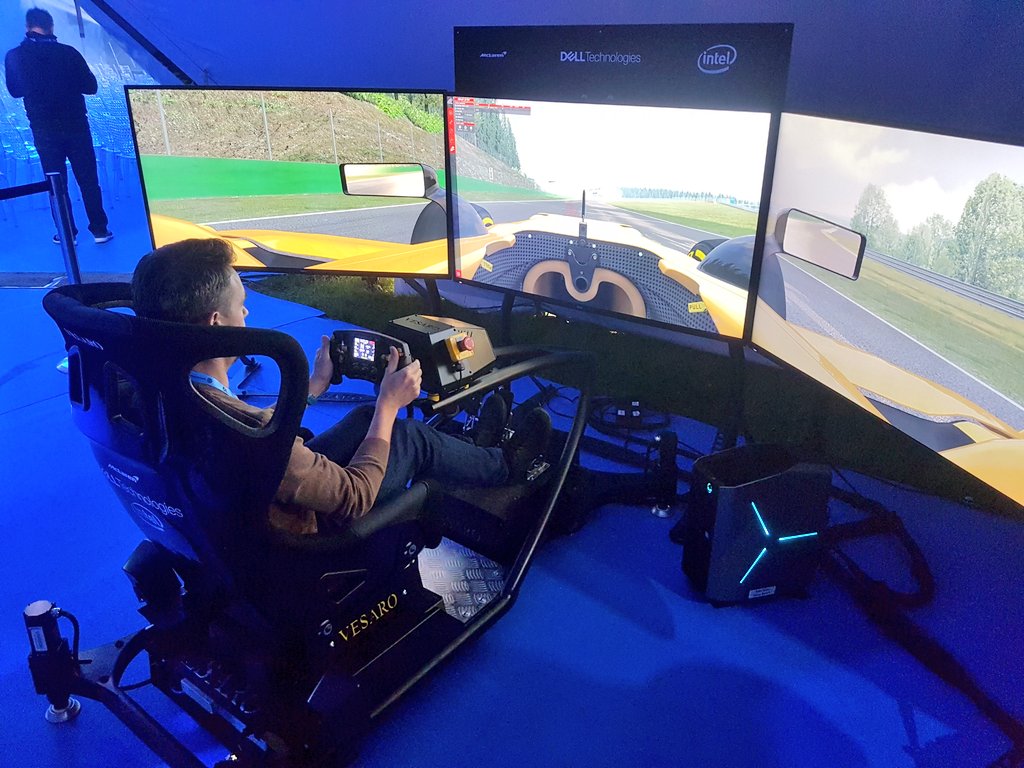
PT19 got me thinking, with companies like Google making self-driving cars, will tech giants have more chance of producing the ‘cars’ of the future than the current motor vehicle brands? One of the big themes across the event was security – but we’re not talking Thatcham-approved immobilisers, it was more about anti-hacking and antivirus. Could the likes of Dell, Lenovo, HP and many others there be better prepared for these emerging issues than Tata and Toyota? Possibly.
I wouldn’t be surprised to see personal mobility devices (I’m not so sure I’d see them as ‘cars’) with names like Apple and Samsung as well as Audi and Suzuki in the coming decades.
As well as the tech itself, PT19 had plenty of knowledgeable speakers, from 400m Olympian Roger Black to representatives of Huawei, Dell and more, plus The Gadget Show’s host, Ortis Deley. Ortis is a guy who knows a fair bit about the cutting edge of technology. After chatting with him about the future of car ownership and deciding we’ll all probably be subscribing to communal transport solutions rather than buying new cars, we chatted a bit about in-car tech.
“There’s more and more of a sense of making the inside of a car a nice place to be, rather than how it drives,” he said. “They may become a really nice place to sit, or even get work done.”
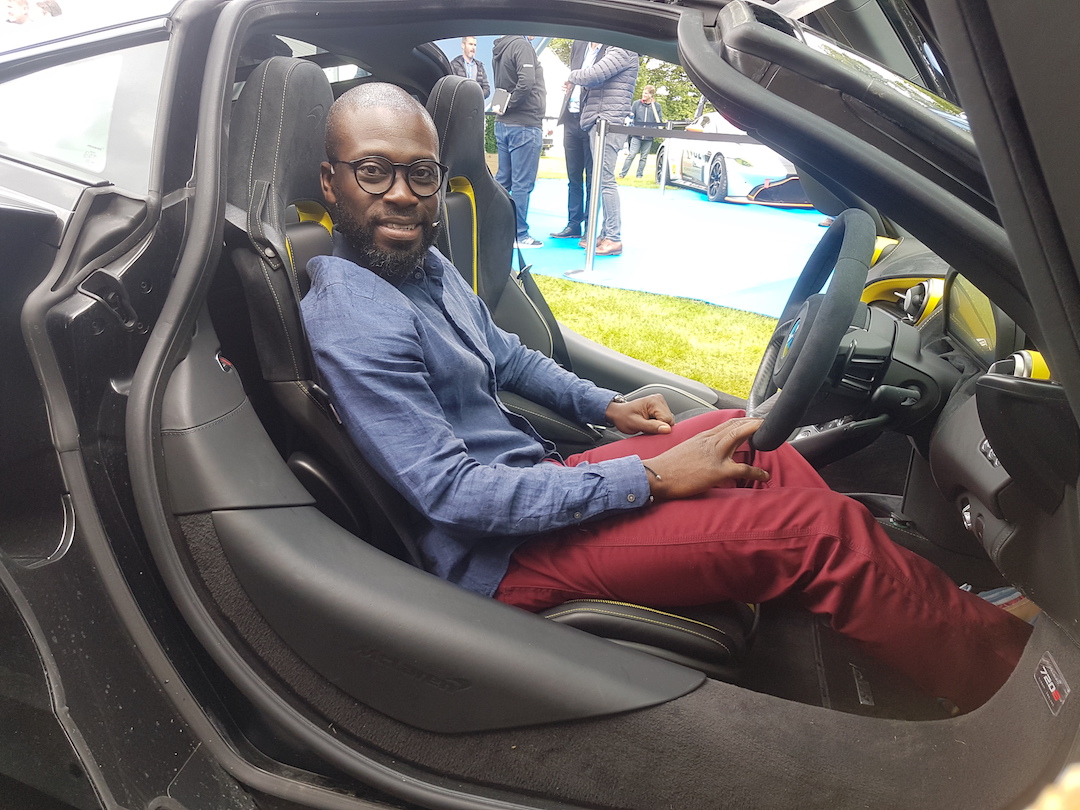
When asked whether he enjoys driving, Ortis was clear. “Yes, I’m more of a passionate driver than my own car would suggest!” admitted the Tiguan-owner, “I love the sound of an exhaust, a petrol-powered engine, but I also love that sound of air rushing across the body of an electric car. It makes me feel like I’m in a spaceship.”
And how does he feel we’ll interact with our cars in the future?
“A lot of work is going into the neural interface, beyond voice control and gesture control. There’ll be a time when even a swipe of the hand seems like too much effort!”

I asked whether he feels there’ll then be a desire for older cars, manual ‘boxes etc. “Oh yeah, always. Just consider the resurgence of vinyl,” he said, “and I believe even CDs will stick around as people look back at the old days. Much like there’ll always be a desire for physical books, rather than ebooks, too. Books will just become more of a niche pastime. But I love the feel of a book.
“I think what we’re chatting about here, really, is that there’s room for everything.”
Indeed. Long live technology. And long live nostalgia.
CLICK TO ENLARGE









